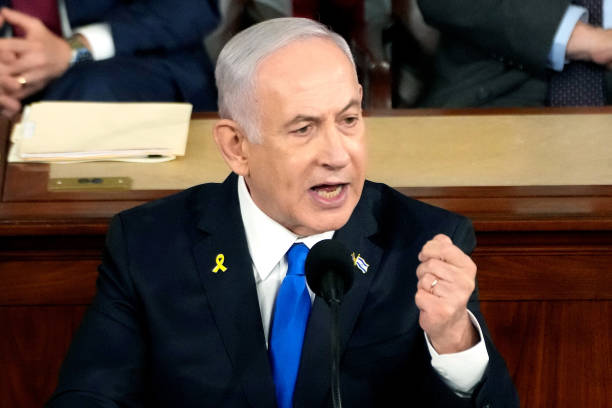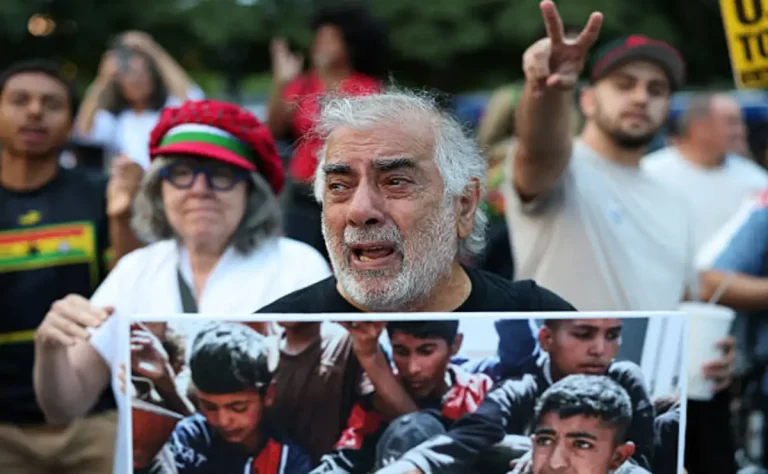
Red Cross urged to access hostages in Gaza after disturbing videos raise medical treatment concerns. Kent Nishimura/Getty Images)
The development follows the release of two disturbing videos that show Israeli hostages appearing emaciated and pleading for assistance.
Israeli authorities have verified the authenticity of the footage, which has intensified public concern and international pressure on humanitarian actors to intervene.
Red Cross Calls for Unrestricted Access Move Hostage Medical Aid Into Gaza
Responding to the Israeli request, the ICRC stated it was “appalled by the harrowing videos” and reiterated its longstanding call for access to all detainees held in the Gaza Strip.
The organization emphasized that it has not been granted access to any hostages since the outbreak of the conflict in October 2023.
The ICRC said its humanitarian mission includes monitoring the treatment of detainees and providing essential care. In a recent statement, the organization urged all parties to uphold international humanitarian law and permit access to those in captivity.
“We continue to ask for access to hostages to ensure their well-being and to offer medical support where needed,” the ICRC said. “This is a fundamental requirement under the Geneva Conventions.”
Hamas Responds with Conditional Offer
In reaction to Netanyahu’s plea, Hamas’s armed wing, the Al-Qassam Brigades, announced it would permit the Red Cross to access the hostages only if humanitarian corridors were opened across all regions of Gaza.
The group claimed the hostages were not intentionally starved, but no preferential treatment would be given to them under the current siege conditions.
“There are no special food privileges for the hostages amid the crime of starvation in Gaza,” a spokesperson said, referencing the broader humanitarian crisis in the region.
Hamas reiterated its demand for unrestricted food and aid access to the entire civilian population before allowing any international agencies to assist detainees.
Pressure Mounts from Hostage Families and Global Agencies
Families of the hostages have renewed calls for immediate government action, criticizing delays in negotiations and demanding that medical aid be delivered without precondition.
Advocacy groups have staged demonstrations and submitted formal appeals to international bodies, citing growing fears for the lives of those in captivity.
“This is no longer just a diplomatic matter — it’s about saving lives,” said Ayala Magen, whose son was abducted during the October 7 attacks. “Every day without access to medical care brings them closer to the brink.”
Human rights organizations and foreign governments have also voiced concern. The World Health Organization warned that ongoing military operations in Gaza have severely disrupted humanitarian aid flow.
In a recent briefing, WHO officials called for medical neutrality and emphasized the urgent need to protect all sick and wounded, including hostages.
Hostage Crisis Highlights Gaza’s Broader Humanitarian Emergency
The hostage situation remains one of the most sensitive and urgent aspects of the wider Israel-Gaza conflict. Over 120 individuals, including Israeli civilians and foreign nationals, are believed to still be held in the enclave.
The worsening state of hostages has drawn attention to the broader medical and food shortages affecting the population in Gaza.
Efforts by Qatar, Egypt, and the United Nations to broker sustained humanitarian corridors have yet to succeed.
Previous temporary truces led to the release of some hostages, but broader access to detainees for medical and humanitarian purposes has not been secured.
Also Read:Christian leaders bring aid to Gaza Catholic church after Israeli strike
While the Red Cross maintains its readiness to act, its access remains contingent on cooperation from both sides — a condition still hindered by mutual distrust and ongoing military activity.

